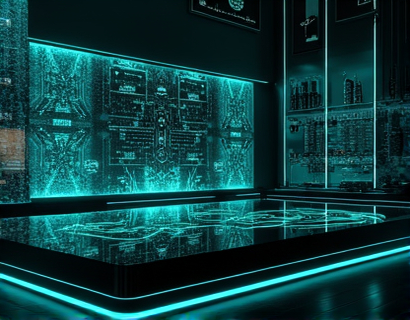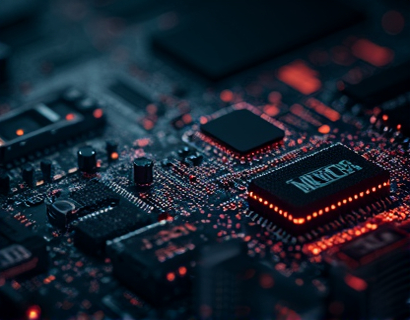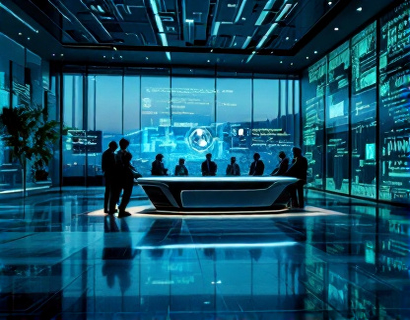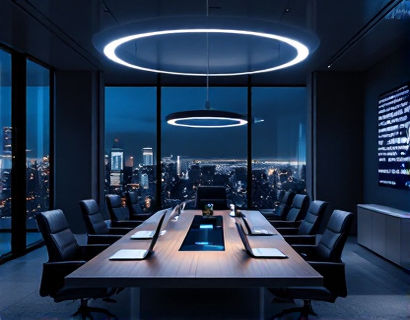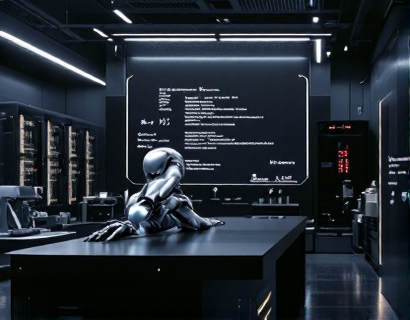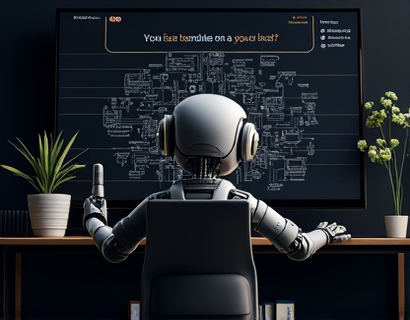Optimizing Event Audio-Visual Management with Advanced Hardware Solutions
In the dynamic world of event planning and production, the audio-visual (AV) component plays a crucial role in setting the tone and atmosphere of any gathering. From small corporate meetings to large-scale festivals, the quality of sound and lighting can significantly impact the overall experience. However, managing AV equipment efficiently remains a challenge for event planners and production managers. This is where advanced hardware solutions come into play, offering a transformative approach to AV management. By leveraging cutting-edge technology, these solutions streamline control, enhance performance, and ensure seamless integration of lighting and sound systems.
The traditional methods of managing AV equipment are often cumbersome and prone to errors. Manual adjustments, manual switching between devices, and the need for extensive technical knowledge can lead to delays and suboptimal performances. Advanced hardware solutions address these issues by providing a centralized control system that simplifies the management of complex AV setups. These systems are designed to be user-friendly, allowing non-technical staff to operate them with ease, while still offering the depth of control needed by experienced professionals.
Key Features of Advanced AV Hardware Solutions
One of the primary advantages of advanced AV hardware solutions is their ability to integrate multiple devices into a single, intuitive interface. This integration allows for real-time monitoring and control of all connected equipment, reducing the risk of human error and improving response times. Key features include:
- Centralized control panel: A user-friendly interface that consolidates all AV devices, making it easy to manage and adjust settings on the fly.
- Wireless connectivity: Eliminates the need for extensive cabling, allowing for greater flexibility in setup and reducing the risk of signal interference.
- Automated presets: Pre-defined settings for common scenarios, such as speeches, presentations, and performances, ensuring consistent quality across different events.
- Remote access: Enables on-site technicians to monitor and control AV systems from anywhere, enhancing efficiency and responsiveness.
These features not only streamline the AV management process but also enhance the overall performance of the systems. By reducing the complexity of operations, event teams can focus more on the creative aspects of the event, knowing that the technical side is well under control.
Benefits of Advanced AV Hardware Solutions
The implementation of advanced AV hardware solutions brings a multitude of benefits to event planners and production managers. Some of the most significant advantages include:
1. Enhanced Reliability: Advanced systems are built with robust hardware and software, ensuring minimal downtime and consistent performance. This reliability is crucial for maintaining the flow of the event and avoiding disruptions.
2. Improved Efficiency: By automating routine tasks and providing quick access to all system functions, these solutions save time and reduce the workload on technical staff. This efficiency allows for more time to be spent on creative and strategic aspects of event planning.
3. Cost Savings: Although the initial investment in advanced AV hardware may be higher, the long-term savings are substantial. Reduced need for manual labor, lower maintenance costs, and fewer equipment failures contribute to a more cost-effective solution over time.
4. Scalability: Advanced AV systems are designed to scale with the needs of the event. Whether it's a small conference or a large festival, these systems can be easily expanded or adjusted to accommodate different requirements.
5. Enhanced Creativity: With the technical aspects of AV management handled seamlessly, event creators can focus more on the artistic and creative elements. This synergy between technology and creativity leads to more innovative and engaging events.
Implementing Advanced AV Hardware in Event Planning
Integrating advanced AV hardware into event planning requires a strategic approach. Here are some steps to ensure a smooth transition and maximize the benefits of these solutions:
1. Assessment and Planning: Begin by assessing the specific needs of your events. Consider the size, type, and frequency of the events, as well as the technical requirements of the AV systems. This assessment will guide the selection of the appropriate hardware and software solutions.
2. Professional Installation: Invest in professional installation to ensure that the hardware is set up correctly and optimized for performance. Proper installation is crucial for achieving the full potential of the system.
3. Training and Support: Provide training for the event team on how to use the new system effectively. Ongoing support and maintenance are also essential to address any issues that may arise and to keep the system running smoothly.
4. Testing and Rehearsals: Conduct thorough testing and rehearsals before the event to identify and resolve any potential issues. This step is critical for ensuring a flawless execution during the actual event.
5. Continuous Improvement: Gather feedback from events to identify areas for improvement. Use this feedback to refine the AV setup and operations, continuously enhancing the overall experience.
Case Studies and Real-World Applications
To illustrate the impact of advanced AV hardware solutions, consider a few real-world applications:
- Corporate Conferences: A large corporate conference used a centralized AV control system to manage multiple stages and breakout sessions. The system's automated presets and wireless connectivity allowed for seamless transitions between sessions, resulting in a smoother and more professional experience for attendees.
- Music Festivals: A popular music festival implemented a scalable AV solution that could handle hundreds of inputs and outputs. The remote access feature enabled technicians to monitor and adjust settings from a central location, reducing the need for on-site personnel and minimizing downtime.
- Trade Shows: A trade show utilized a user-friendly control panel to manage lighting and sound for numerous booths. The integrated system allowed booth operators to make real-time adjustments, enhancing the overall visitor experience and ensuring consistent branding across all areas.
These case studies demonstrate the versatility and effectiveness of advanced AV hardware solutions in various event types, highlighting their ability to enhance both technical performance and creative expression.
Future Trends in AV Technology
The field of AV technology is rapidly evolving, with several trends poised to shape the future of event management:
1. Artificial Intelligence and Machine Learning: AI-driven systems can predict and adapt to user preferences, automating complex tasks and optimizing performance based on historical data.
2. Internet of Things (IoT): The integration of IoT devices allows for more interconnected and intelligent AV setups, enabling real-time data collection and analysis for better decision-making.
3. Augmented Reality (AR) and Virtual Reality (VR): AR and VR technologies are being incorporated into AV systems to create immersive experiences, transforming how events are designed and experienced.
4. Sustainability: There is a growing focus on eco-friendly AV solutions, with an emphasis on energy-efficient hardware and sustainable practices in event planning.
By staying informed about these trends, event planners and production managers can leverage the latest advancements to create more engaging, efficient, and sustainable events.
Conclusion
Advanced hardware solutions for AV management represent a significant leap forward in the field of event planning and production. By streamlining control, enhancing performance, and integrating seamlessly with creative efforts, these solutions offer unparalleled reliability and ease of use. As technology continues to evolve, the potential for innovation in event AV management is vast, promising even more exciting developments in the future. Embracing these advancements can elevate any event to new heights of excellence, ensuring that the focus remains on creating unforgettable experiences for all attendees.






